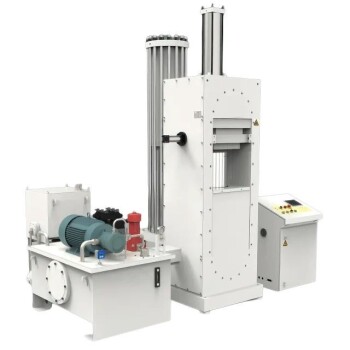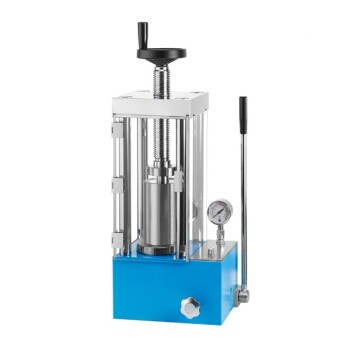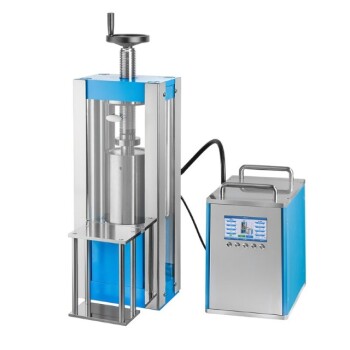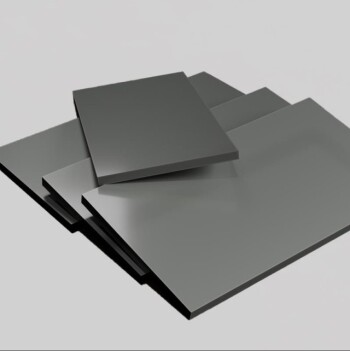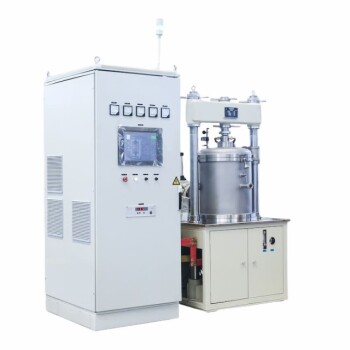Market Overview
Table of Contents
- Market Overview
- Definition and functioning of isostatic pressing systems
- Difference between cold and hot isostatic pressing
- Key drivers for growth of isostatic pressing systems globally
- Application of isostatic pressing in various industries
- Benefits of isostatic pressing in metal density and tooling costs
- Role of isostatic pressing in offering a range of ceramic products
- Impact of short development cycle products on market growth
- Factors Influencing Market Growth
- Influence of short production cycle demand in the healthcare sector
- Rising demand for 3D printing technology in the automotive sector
- High initial investment for hot isostatic pressing
- Market challenges for small manufacturers in developing countries
- Growth opportunities in the defense sector with additive manufacturing technology
- Impact of COVID-19 on the Isostatic Pressing Market
- Market Segmentation and Trends
- Revenue analysis by offering, type, CIP process type, and application
- Market dominance of the systems segment
- Comparison between hot and cold isostatic pressing market shares
- Revenue analysis by HIP capacity
- Comparison between dry-bag and wet-bag pressing market shares
- Market analysis by application
- Regional analysis of market trends
- Conclusion
Isostatic pressing systems, which use fluid or gas pressure to uniformly modify materials, are experiencing significant growth in the global market. These systems are used in various industries and offer numerous benefits, making them a popular choice for manufacturing high-performance components.
Definition and functioning of isostatic pressing systems
Isostatic pressing systems apply equal force from all directions to materials using fluid or gas pressure. This process can be conducted at high temperatures or room temperature.
Difference between cold and hot isostatic pressing
Cold isostatic pressing is used for large and complex parts where the initial cost is unjustified, while hot isostatic pressing is conducted at high temperatures. Both processes have their advantages and are suitable for different applications.
Key drivers for growth of isostatic pressing systems globally
The growth of isostatic pressing systems is driven by the increasing demand for high-quality and durable materials. As technology advances and industries seek more efficient solutions, the need for isostatic pressing products continues to grow.
Application of isostatic pressing in various industries
Isostatic pressing is widely used in industries such as oil and gas, medical devices, and electrical connectors. It allows for the manufacturing of complex shapes that are difficult to achieve with conventional processes.

Benefits of isostatic pressing in metal density and tooling costs
Isostatic pressing can increase the density of metals and lower tooling costs. This makes it an attractive option for industries that require high-density materials and cost-effective manufacturing processes.
Role of isostatic pressing in offering a range of ceramic products
Isostatic pressing offers a wide range of ceramic products, including balls, tubes, fuse tubes, lighting tubes, and spark plug insulators. This technology enables the production of ceramic components with improved mechanical properties.

Impact of short development cycle products on market growth
The demand for products with short development cycles is expected to drive the growth of the isostatic pressing market. Industries such as healthcare rely on efficient and timely production processes, making isostatic pressing a valuable technology.
Overall, the isostatic pressing market is experiencing growth due to its wide range of applications, benefits in materials manufacturing, and the demand for innovative and efficient solutions in various industries. As technology continues to advance and industries evolve, the market is expected to expand even further.
Factors Influencing Market Growth
Influence of short production cycle demand in the healthcare sector
The healthcare sector is experiencing a rapid rise in demand for products with short production cycles. This is mainly due to the need for timely delivery of medical devices and equipment. Isostatic pressing technology plays a crucial role in meeting this demand by providing efficient and precise manufacturing processes. The ability to produce high-quality components quickly is driving the growth of the isostatic pressing market in the healthcare sector.

Rising demand for 3D printing technology in the automotive sector
The automotive sector is witnessing a surge in demand for low-cost spare parts manufacturing techniques. This demand is primarily fueled by the adoption of additive manufacturing or 3D printing technology. Isostatic pressing is an essential process in the production of components for 3D printing. As the automotive industry continues to embrace this technology, the demand for isostatic pressing is expected to grow significantly.

High initial investment for hot isostatic pressing
Hot isostatic pressing (HIP) technology requires a substantial initial investment. This is due to the need for advanced machinery, specialized technologies, and high-pressure vessels. The establishment of a hot isostatic pressing facility involves significant costs associated with equipment acquisition, safety measures, and training. This high initial investment acts as a barrier to entry for new players in the market. However, the long-term benefits, such as market growth and the ability to meet the increasing demand for high-quality components, justify the investment in hot isostatic pressing.
Market challenges for small manufacturers in developing countries
Small isostatic pressing manufacturers in developing countries face significant challenges in competing with global players. The presence of established companies with advanced technologies and resources creates a competitive landscape that is difficult for small manufacturers to navigate. This competition poses a risk to the growth of small isostatic pressing businesses in developing countries.
Growth opportunities in the defense sector with additive manufacturing technology
The defense sector is increasingly adopting additive manufacturing technology for various applications. This technology offers significant advantages in terms of flexibility, customization, and cost-effectiveness. Isostatic pressing plays a crucial role in the production of components for additive manufacturing in the defense sector. The growing use of additive manufacturing technology in defense presents significant growth opportunities for the isostatic pressing market.
In conclusion, the factors influencing the growth of the isostatic pressing market include the demand for short production cycles in the healthcare sector, the rising adoption of 3D printing technology in the automotive sector, the high initial investment required for hot isostatic pressing, the challenges faced by small manufacturers in developing countries, and the growth opportunities in the defense sector with additive manufacturing technology. These factors shape the market dynamics and offer insights into the future growth potential of the isostatic pressing industry.
Impact of COVID-19 on the Isostatic Pressing Market
Decline in production and manufacturing sectors due to pandemic
The COVID-19 outbreak has had a significant impact on the isostatic pressing market, particularly in the production and manufacturing sectors. The pandemic has led to a decline in the growth rate of these sectors in 2020, and it is expected that the market will witness relatively slow growth until the end of 2021. The implementation of travel bans and facility closures has kept the workforce out of factories, further affecting the isostatic pressing market.
Effect of COVID-19 on the automotive, healthcare, and aerospace industries
Industries such as automotive, healthcare, and aerospace have been particularly affected by the obstacles created amid the COVID-19 pandemic. The automotive segment, however, is expected to witness the highest compound annual growth rate (CAGR) during the forecast period. The healthcare and energy & power sectors have experienced considerable growth during the pandemic, which is expected to drive the demand for the isostatic pressing market in the coming years.
Projected growth in the healthcare and energy & power sectors amid the pandemic
The healthcare sector is expected to witness rapid growth in demand for products with a short production cycle. This rise in demand is attributed to the need for medical equipment and supplies during the pandemic. Additionally, the energy & power sector is projected to experience growth, further contributing to the demand for isostatic pressing technologies.

Isostatic Pressing Market Outlook (2023 to 2033)
The global isostatic pressing industry is expected to reach a valuation of US$ 8.7 billion by 2023 and surpass US$ 22.7 billion by 2033. The market is projected to witness steady growth at a CAGR of 10.1% between 2023 and 2033.
Isostatic pressing is a technique used in the manufacturing and production of various materials. This process involves enclosing a powdered material in a flexible mold or container and applying even pressure on all sides. The pressure is typically applied by a liquid or gas, resulting in dense, uniform products with excellent mechanical properties.
The precision machine manufacturing segment has been adversely impacted by the COVID-19 pandemic. However, the isostatic pressing industry is expected to witness growth in the forecast period due to the increasing demand for products with short production cycles in the healthcare sector. Additionally, the rise in demand for additive manufacturing or 3D printing technology in the automotive sector is driving the growth of the global isostatic pressing market.
Although there are challenges such as high initial investments for hot isostatic pressing and competition with global players, the use of additive manufacturing technology in the defense sector provides significant opportunities for isostatic pressing technology.
Market Segmentation and Trends
Revenue analysis by offering, type, CIP process type, and application
The isostatic pressing market is analyzed based on various factors such as offering, type, CIP process type, and application. In terms of offering, the market is divided into services and systems. The systems segment dominated the market in terms of revenue in 2019 and is expected to continue this trend in the forecast period. The market is also segmented by type, with hot isostatic pressing (HIP) and cold isostatic pressing (CIP) being the two main categories. The HIP segment dominated the market in 2019, but the CIP segment is projected to witness significant market share growth in the coming years. Additionally, the market is analyzed based on the CIP process type, which includes dry-bag pressing and wet-bag pressing. The dry-bag pressing segment accounted for a major share in 2019, but the wet-bag pressing segment is expected to have the highest CAGR during the forecast period.
Market dominance of the systems segment
The systems segment holds a dominant position in the isostatic pressing market. These systems are used for various applications in industries such as aerospace, automotive, energy, medical, and tooling. They offer advanced manufacturing solutions to enhance material properties and component performance. The demand for reliable and high-performance components in these industries is driving the growth of the systems segment in the market.
Comparison between hot and cold isostatic pressing market shares
Hot isostatic pressing (HIP) and cold isostatic pressing (CIP) are two important segments in the market. In 2019, the HIP segment dominated the market in terms of revenue. However, the CIP segment is expected to witness significant market share growth during the forecast period. Both HIP and CIP have their own advantages and applications in various industries. The choice between the two depends on the specific requirements of the application.
Revenue analysis by HIP capacity
The isostatic pressing market is also analyzed based on the capacity of the HIP systems. The market is divided into small-sized HIP, medium-sized HIP, and large-sized HIP segments. In 2019, the large-sized HIP segment accounted for the highest market share and is expected to continue this trend in the forecast period. The capacity of the HIP systems determines their capability to handle different sizes and quantities of materials for pressing.
Comparison between dry-bag and wet-bag pressing market shares
Dry-bag pressing and wet-bag pressing are two methods of cold isostatic pressing (CIP). In 2019, the dry-bag pressing segment accounted for a major share in the market. However, the wet-bag pressing segment is expected to witness the highest CAGR during the forecast period. Each method has its own advantages and suitability for different applications. The choice between the two depends on factors such as production volume, complexity of parts, and cost considerations.
Market analysis by application
The isostatic pressing market is analyzed based on various applications, including automotive, aerospace & defense, medical, precision machine manufacturing, energy & power, and others. In 2019, the aerospace & defense segment accounted for the major share in the global market. However, the automotive segment is expected to witness the highest CAGR during the forecast period. The demand for isostatic pressing in the automotive industry is driven by the need for high-performance components and the trend towards lightweight materials.
Regional analysis of market trends
The isostatic pressing market trends are analyzed across different regions, including North America, Europe, Asia-Pacific, and LAMEA. In 2019, North America dominated the market in terms of revenue and is expected to continue this trend in the forecast period. The growth of the market in North America is attributed to factors such as established manufacturing industries, favorable government initiatives, and technological advancements. Europe is also an emerging market for isostatic pressing, driven by industries such as aerospace & defense, automotive, and energy. Asia-Pacific is witnessing significant growth in the market due to industrialization, infrastructural development, and investment in sectors such as aerospace, automotive, and energy.
Conclusion
In conclusion, the COVID-19 pandemic has significantly impacted the global isostatic pressing market. The decline in production and manufacturing sectors due to the pandemic has affected the demand for isostatic pressing systems across various industries, including automotive, healthcare, and aerospace. However, there are projected growth opportunities in the healthcare and energy & power sectors amid the pandemic. Despite the challenges faced by small manufacturers in developing countries and the high initial investment for hot isostatic pressing, the market is expected to recover and continue its growth trajectory in the coming years. Isostatic pressing remains a crucial technology for achieving high metal density and reducing tooling costs, offering a wide range of applications in different industries.
If you are interested in this product you can browse our company website:https://kindle-tech.com/product-categories/isostatic-press, we always insist on the principle of quality first. During the production process, we strictly control every step of the process, using high quality materials and advanced production technology to ensure the stability and durability of our products. to ensure that their performance meets the highest standards. We believe that only by providing customers with excellent quality can we win their trust and long-term cooperation.
Related Products
- Cold Isostatic Pressing Machine CIP for Small Workpiece Production 400Mpa
- Electric Lab Cold Isostatic Press CIP Machine for Cold Isostatic Pressing
- Manual Cold Isostatic Pressing Machine CIP Pellet Press
- Warm Isostatic Press WIP Workstation 300Mpa for High Pressure Applications
- Warm Isostatic Press for Solid State Battery Research
Related Articles
- Understanding Isostatic Pressing: Process, Benefits, Limitations, and Applications
- Zirconia Ceramic Rod Production Processes: Isostatic Pressing vs. Dry Pressing
- How Isostatic Presses Help Eliminate Defects in Materials
- Comprehensive Guide to Isostatic Pressing:Processes, and Features
- Isostatic Pressing Technology: Revolutionizing Ceramic Material Densification


